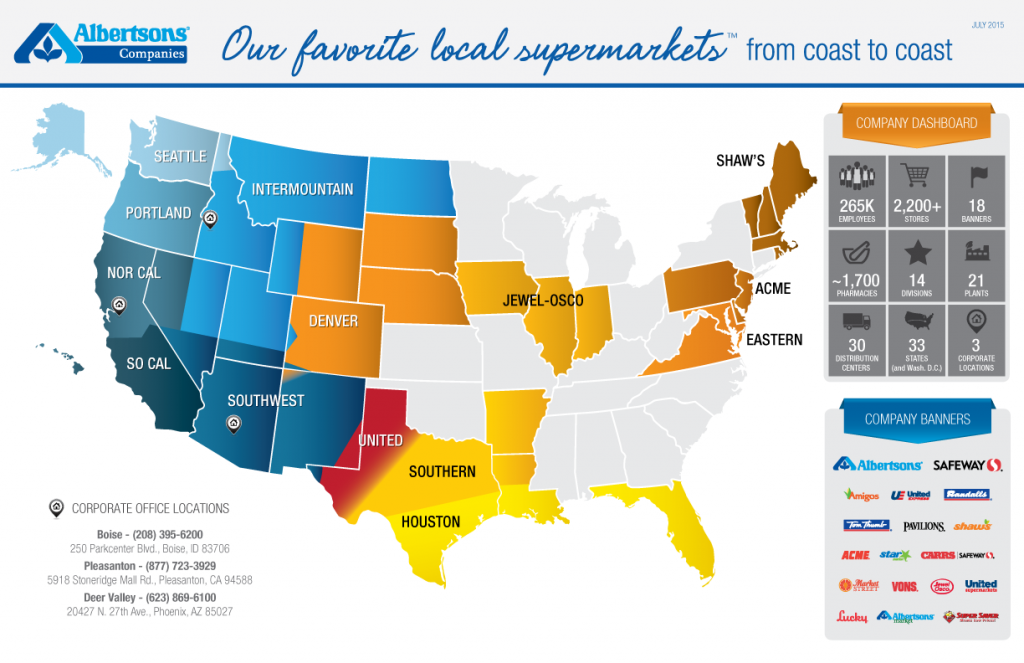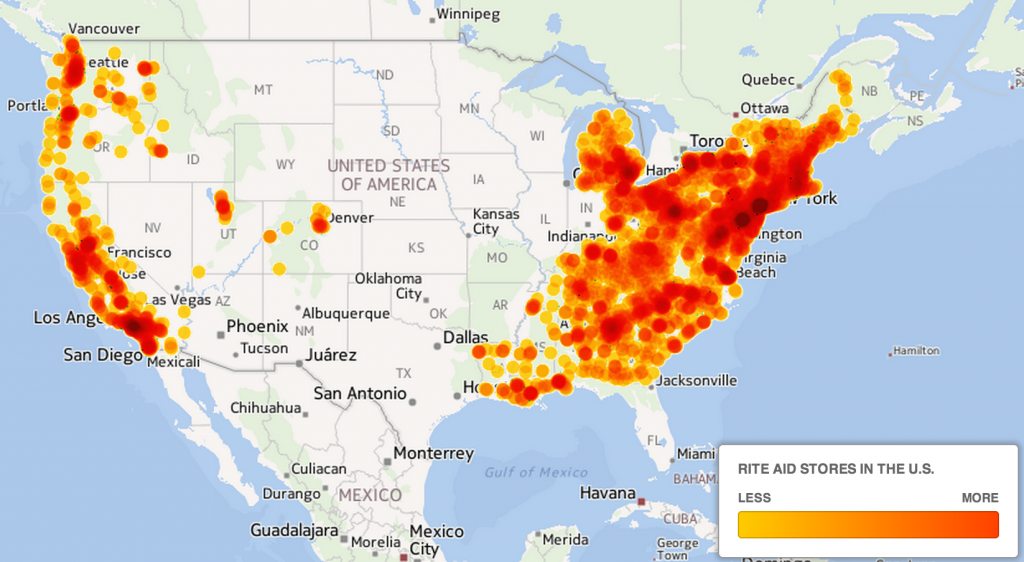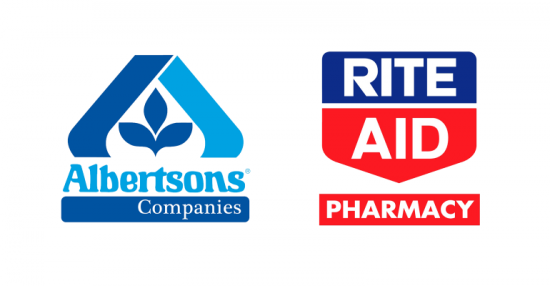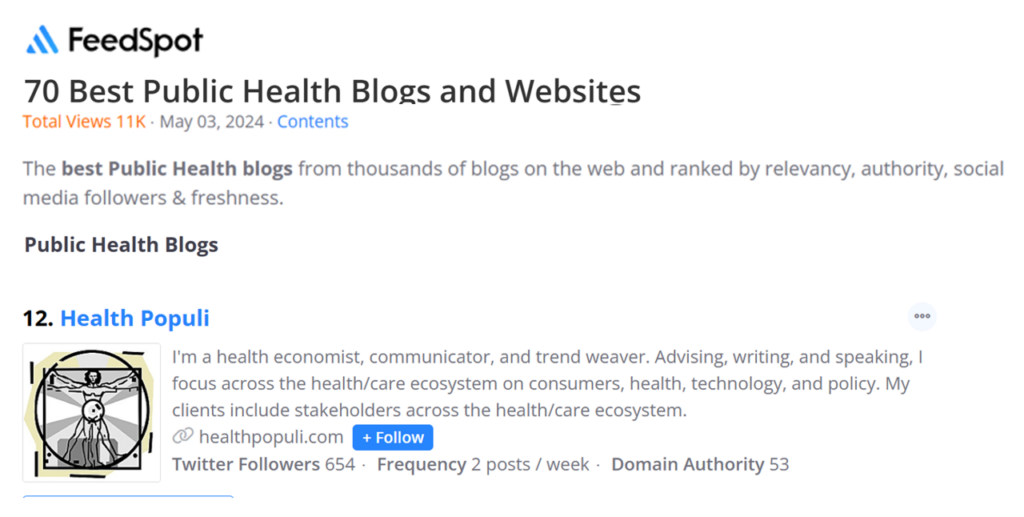Albertsons, the grocery group with popular brands like Acme, Safeway, and Vons, announced a merger with Rite Aid, the retail pharmacy chain. The deal has been discussed as Albertsons’ move to succeed in light of growing competition from Amazon and Whole Foods, the proposed CVS/Aetna merger, and Walgreens’ possible purchase of AmerisourceBergen (finalizing its acquisition of over 1,900 Rite Aid stores).
 If played out well, the combination could become an important player in the evolving U.S. health/care ecosystem that brings a self-care front-door closer to consumers, patients and caregivers.
If played out well, the combination could become an important player in the evolving U.S. health/care ecosystem that brings a self-care front-door closer to consumers, patients and caregivers.
“The new company is expected to serve more than 40 million U.S. customers a week at around 4,900 locations, 4,350 pharmacy counters and 320 health clinics across the U.S.,” USA Today reported.
 Albertsons’ geographic footprint has been heavily weighted on the western side of America, with some Mid-Atlantic reach through the Acme, Eastern and Shaws storefronts. Adding Rite Aid to this map would expand Albertsons’ physical reach to millions of more food, healthcare and wellness consumers.
Albertsons’ geographic footprint has been heavily weighted on the western side of America, with some Mid-Atlantic reach through the Acme, Eastern and Shaws storefronts. Adding Rite Aid to this map would expand Albertsons’ physical reach to millions of more food, healthcare and wellness consumers.
Albertsons opened its first retail clinic in 2003 in Boise, Idaho, reported here in Supermarket News. “This is the first time we have accommodated a medical clinic within the structure of a store,” a company spokesperson said. Supermarket News opined that this opening was “unusual” in the supermarket industry at the time.
Retail clinics co-located in pharmacies and grocery stores are mainstream today. One key asset in Rite Aid are the chain’s RediClinics, operating in over 60 Rite Aid pharmacies and also in H-E-B grocery stores in Texas.
 Rite Aid has a concentration of bricks-and-mortar stores east of the Mississippi, as the second map illustrates.
Rite Aid has a concentration of bricks-and-mortar stores east of the Mississippi, as the second map illustrates.
Note that Albertsons bought Plated, the subscription meal kit company, in 2017.
Health Populi’s Hot Points: Yesterday in Washington, DC, at the Healthcare Costs Innovation Summit sponsored by West Health, Dr. Mark Smith, Professor of Medicine at UCSF and former President of California HealthCare Foundation, talked about the importance of self-care.
His remarks provided context and introduction to a panel on “The Power of the Patient” in helping address health care costs in America.
Dr. Smith provided evidence on the pivotal role consumers can play in co-designing and co-producing health and healthcare through self-care.
“As long as we talk about controlling costs in a system whose larger ecology produces diseases we want to treat, we won’t get too far” without supported people in self-care, Dr. Smith asserted. He presented evidence for the role of self care from various healthcare settings and geographies such as post-hospital discharge care with nurses and handymen in Baltimore, hypertension and self-monitoring in the U.K., and self-dialysis in Sweden….and in West Philadelphia.
Dr. Smith noted there’s a huge reservoir of untapped labor in patients.
The role of grocery stores, pharmacies and retail clinics will be part of this growing self-care support system in our communities…if we are to lower healthcare costs in America, improve quality, and reduce healthcare disparities. Albertsons and Rite Aid can be part of this movement.
A journalist writing for Fortune questioned whether Albertsons’ purchase of Rite Aid would prove to be a “lemon.” I believe it can be a Jewel (which is, coincidentally, one of Albertsons’ grocery store brands).





 Thanks to Feedspot for identifying
Thanks to Feedspot for identifying  Jane was named as a member of the AHIP 2024 Advisory Board, joining some valued colleagues to prepare for the challenges and opportunities facing health plans, systems, and other industry stakeholders.
Jane was named as a member of the AHIP 2024 Advisory Board, joining some valued colleagues to prepare for the challenges and opportunities facing health plans, systems, and other industry stakeholders.  Join Jane at AHIP's annual meeting in Las Vegas: I'll be speaking, moderating a panel, and providing thought leadership on health consumers and bolstering equity, empowerment, and self-care.
Join Jane at AHIP's annual meeting in Las Vegas: I'll be speaking, moderating a panel, and providing thought leadership on health consumers and bolstering equity, empowerment, and self-care.